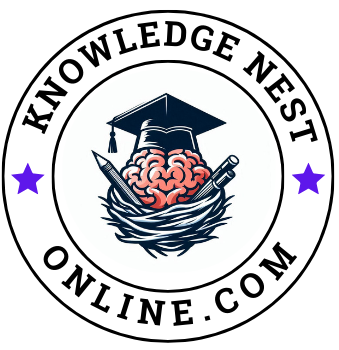
“Here’s a little transparency: Our website contains affiliate links. This means if you click and make a purchase, we may receive a small commission. Don’t worry, there’s no extra cost to you. It’s a simple way you can support our mission to bring you quality content.”
Are you intrigued by artificial intelligence (AI) and machine learning (ML) but unsure where to start? Don’t worry—you’re not alone. The world of AI can feel overwhelming at first, but the good news is that you don’t need a Ph.D. or years of experience to dive in. In this guide, we’ll walk through the essentials to help you kick off your journey into AI and machine learning, even if you’re starting with zero experience.
Understanding AI and Machine Learning: Laying the Groundwork
Before jumping into coding or data science projects, it’s important to understand what AI and ML really are.
What’s the Difference Between AI and Machine Learning?
In simple terms, AI refers to machines or systems that can mimic human intelligence, such as problem-solving or decision-making. Machine learning, a subset of AI, is about teaching computers to learn from data, without being explicitly programmed. You could think of machine learning as the engine that powers many AI applications we use today, like recommendation systems on Netflix or the facial recognition on your phone.
The History of AI Technologies
AI has been around longer than you might think. Its history dates back to the 1950s with the development of early rule-based systems. Fast forward to today, and we’re seeing AI evolve into neural networks and deep learning algorithms that are responsible for innovations like self-driving cars and language translation apps. This rapid advancement is why many people are excited about AI—and why you should be, too!
Why AI and Machine Learning Are Essential Skills Today
Now that you know what AI and machine learning are, let’s talk about why they’re such hot topics in tech—and why learning them can be a game-changer for your career.
High Demand for AI Professionals
Wondering how to start a career in AI and machine learning? You’re on the right track. AI professionals are in huge demand, and companies across industries—think healthcare, finance, retail, and more—are investing heavily in AI strategies. There’s never been a better time to learn AI and break into this growing field. Whether you want to be a data scientist, machine learning engineer, or AI researcher, opportunities are booming.
AI Applications Are Everywhere
From personalized shopping recommendations to AI-powered chatbots, AI is transforming how businesses operate. And it’s not just tech giants like Google or Amazon using AI—smaller companies are jumping on the bandwagon too, applying machine learning to optimize operations, boost customer service, and even improve healthcare outcomes. So whether you’re interested in AI for tech, business, or healthcare, there’s a niche for you.
Career Opportunities and Salaries
Let’s talk numbers. Careers in AI and machine learning are not only plentiful but also lucrative. AI engineers, for instance, can easily command six-figure salaries. With the right skills and experience, you could be looking at a well-paid and exciting career path.
How Do I Get Started in AI and Machine Learning?

If you’re wondering how to get into AI with no experience, don’t worry. Plenty of resources are available, many of them free or affordable, to help you build foundational skills.
Should You Start with AI or Machine Learning First?
It’s often easier to start with machine learning because it’s a more focused topic and is foundational to most AI systems. Once you’re comfortable with machine learning concepts, you can then expand into the broader and sometimes more abstract concepts in AI.
Free and Affordable Courses
Here’s a list of free and affordable courses to get you started:
- Coursera – AI For Everyone (Taught by Andrew Ng)
Perfect for absolute beginners. This course focuses on the non-technical aspects of AI, making it accessible to anyone, even if you don’t have a programming background. - Coursera – Machine Learning (Stanford University)
Another highly-rated course by Andrew Ng, this one digs into the technical side of machine learning algorithms, giving you a hands-on understanding of how they work. - edX – Introduction to Python for Data Science (Microsoft)
Python is essential for AI and machine learning, and this course covers the basics, ideal for total beginners. - Udemy – Python for Data Science and Machine Learning Bootcamp
A budget-friendly course that combines Python programming with machine learning projects to help you build practical skills. - Alison – Artificial Intelligence for Beginners This free course from Alison provides a great introduction to AI for beginners, covering the key concepts in an easy-to-understand format, perfect for those who are just starting out.
Essential Tools: Programming Languages and Libraries
To succeed in AI and ML, you’ll need to get familiar with programming, especially Python, which is the go-to language for AI due to its simplicity and powerful libraries like TensorFlow, PyTorch, and scikit-learn. Start small with beginner-friendly projects, like building a chatbot or image recognition model. As you gain confidence, you can tackle more complex projects.
Join the AI Community
Joining AI-related forums and online groups can make a huge difference when you’re learning. Communities like Stack Overflow or Reddit’s r/machinelearning offer a great way to connect with others, share ideas, and get answers to your questions.
Building Your First AI Project
One of the best ways to solidify your understanding of AI and machine learning is by building your first project.
Choosing a Beginner-Friendly Project
Start simple. Projects like image recognition or chatbot development are perfect for beginners. They’re practical, hands-on, and don’t require enormous datasets.
Setting Up Your Environment
Set up a development environment using Jupyter Notebook or Google Colab, which are beginner-friendly tools for running Python code. From there, you can install machine learning libraries and start coding!
Paths for Advancement: From Beginner to Expert
So, you’ve built your first project—what’s next? Here’s how to keep growing your skills.
Explore Advanced Concepts
Once you’ve mastered the basics, explore more advanced topics like deep learning, natural language processing (NLP), or reinforcement learning. These are in-demand skills that can set you apart in the AI job market.
Recommended Certifications and Advanced Degrees
- Google Professional Machine Learning Engineer Certification
This certification is ideal if you’re aiming to work in cloud-based AI solutions using Google Cloud. - Microsoft Certified: Azure AI Engineer Associate
Perfect for those looking to specialize in Microsoft’s AI ecosystem. - IBM AI Engineering Professional Certificate (Coursera)
A comprehensive program covering key AI tools and techniques, recognized by industry leaders.
For those looking for a more formal education, universities like Stanford and MIT offer Master’s degrees in AI and machine learning, and there are also excellent online programs, such as the University of Texas at Austin’s Master of Computer Science in AI.
Networking and Staying Updated
Networking is key to advancing in AI. Attend AI conferences, participate in online forums, and follow industry leaders on LinkedIn. Staying updated with the latest research and industry trends will help keep your skills sharp and relevant.
Final Thoughts
Getting started with AI and machine learning might feel daunting, but it’s an incredibly rewarding journey. Whether you’re just dipping your toes into the field or planning to build a career, there are endless resources available to help you grow. Remember, consistency is key—so start small, keep learning, and most importantly, have fun along the way!
